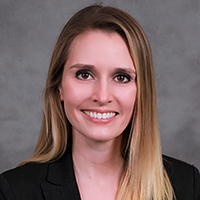PNW Faculty Senate passes new grade appeal policy
The Faculty Senate passed a new student grade appeal policy, reshaping the grade appeal policies from the former Purdue Calumet and Purdue North Central, on Dec. 9.
The policy was drafted over the summer by a subcommittee formed by the Student Affairs Committee. The subcommittee looked over the previous policies that were in place prior to unification, eliminating and adding to the new policy that will be used for both campuses.
Feng-Song Wang, associate professor of Biological Sciences and a voting member of the committee, helped draft the new policy. He said that a new policy was crucial because of the unification of both campuses. Wang and his colleagues worked on the policy from July 27 through Sept. 15.
“Due to the unification of PUC and PNC, the grade appeal policy on both campuses were slightly different and as a new university we need to have a uniformed policy that works for both campuses,” Wang said.
The new policy eliminates individual colleges from having specific grade appeal policies, meaning that one policy is now used university-wide. Previously at PUC, appeals were done through the different colleges on campus, while now the appeals are done through the university. The new policy helps to create uniformity and it also establishes protection for the students and the academic integrity of the university.
“The grade appeals policy is drafted for the benefit of students and to give students the right to dispute the grades they receive if they have problems,” Wang said.
Kenneth Kincaid, associate professor of history, was recently appointed as the facilitator for the appeal process. Grade appeals go through him and when he receives an appeal he asks for the student to meet with the professor or the department head of the college to try to resolve the problem within 35 days of requesting an appeal. On the 35th day, the student will need to inform Kincaid that they wish to continue going forward with the grade appeal. Kincaid then passes the appeal to the screening panel, where there are two faculty members and one student who decides its validity. If the screening panel determines the appeal is valid, it will go to the hearing panel where three faculty members and two students will decide the fate of the appeal.
“I want to make sure that students feel comfortable and that they feel certain that they have a mechanism in which they can appeal a grade if they feel it is appropriate,” Kincaid said. “I want students to feel that this is something that they can trust regarding a disputed grade.”
Kincaid said the process stays unbiased, as the faculty members chosen are not from the same college the appeal is going through and the students allow for a student perspective to be considered during the decision.
“Having more people—faculty and students—involved makes the grade appeals transparent and comfortable,” Kincaid said.
Wang hopes that the policy will run smoothly and believes the senate is open for any concerns that students may have. As for Kincaid, he believes that the policy shows how administrators are making PNW feel like one campus. He hopes that the new policy will benefit students.
“I look forward to working with students from both campuses with respect to the grade appeals process and hopefully if they have any concerns about the process they will feel comfortable contacting me,” Kincaid said. “Students have a right to clarify of why they got a grade.”


